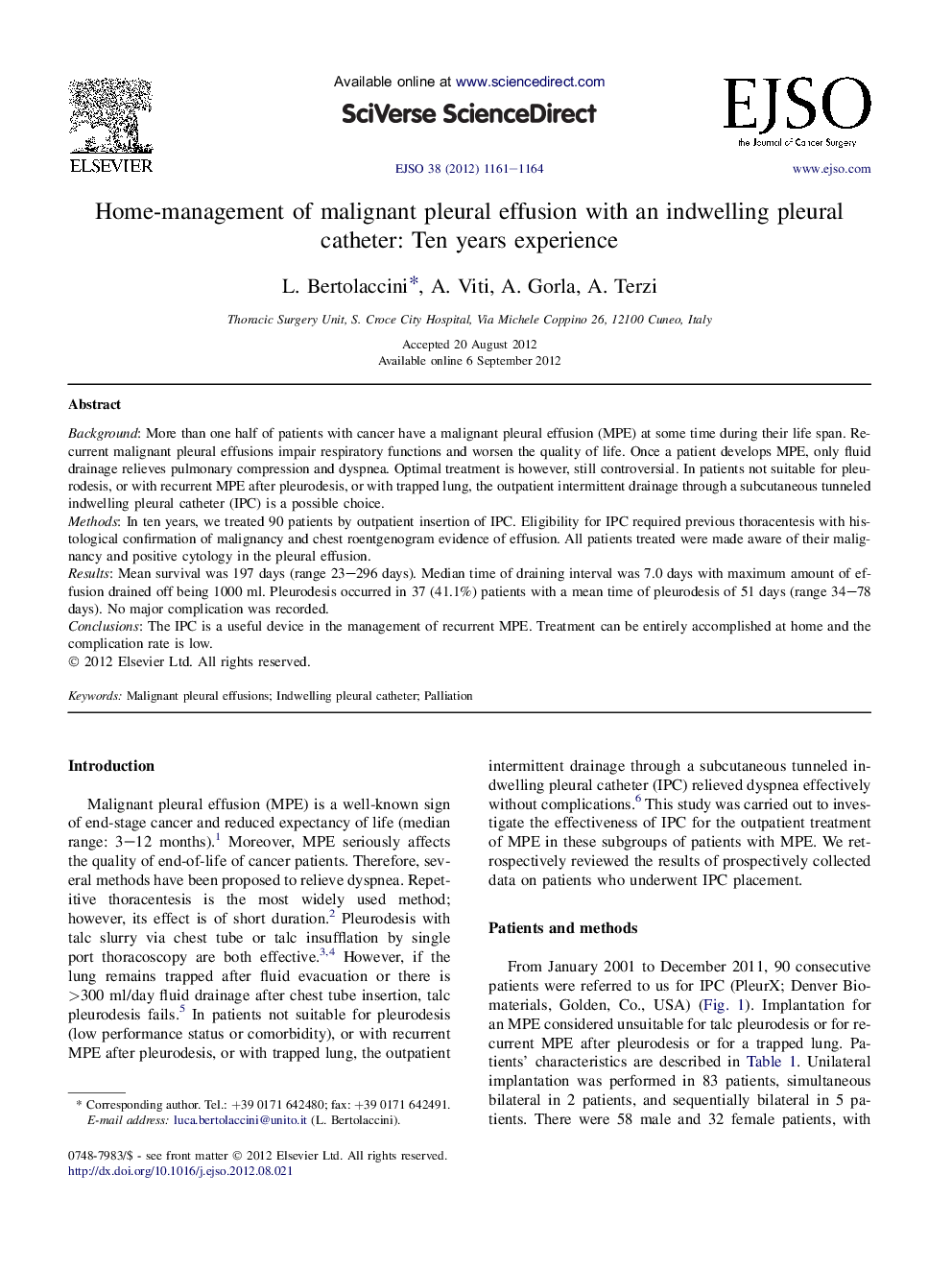| Article ID | Journal | Published Year | Pages | File Type |
|---|---|---|---|---|
| 3986483 | European Journal of Surgical Oncology (EJSO) | 2012 | 4 Pages |
BackgroundMore than one half of patients with cancer have a malignant pleural effusion (MPE) at some time during their life span. Recurrent malignant pleural effusions impair respiratory functions and worsen the quality of life. Once a patient develops MPE, only fluid drainage relieves pulmonary compression and dyspnea. Optimal treatment is however, still controversial. In patients not suitable for pleurodesis, or with recurrent MPE after pleurodesis, or with trapped lung, the outpatient intermittent drainage through a subcutaneous tunneled indwelling pleural catheter (IPC) is a possible choice.MethodsIn ten years, we treated 90 patients by outpatient insertion of IPC. Eligibility for IPC required previous thoracentesis with histological confirmation of malignancy and chest roentgenogram evidence of effusion. All patients treated were made aware of their malignancy and positive cytology in the pleural effusion.ResultsMean survival was 197 days (range 23–296 days). Median time of draining interval was 7.0 days with maximum amount of effusion drained off being 1000 ml. Pleurodesis occurred in 37 (41.1%) patients with a mean time of pleurodesis of 51 days (range 34–78 days). No major complication was recorded.ConclusionsThe IPC is a useful device in the management of recurrent MPE. Treatment can be entirely accomplished at home and the complication rate is low.
